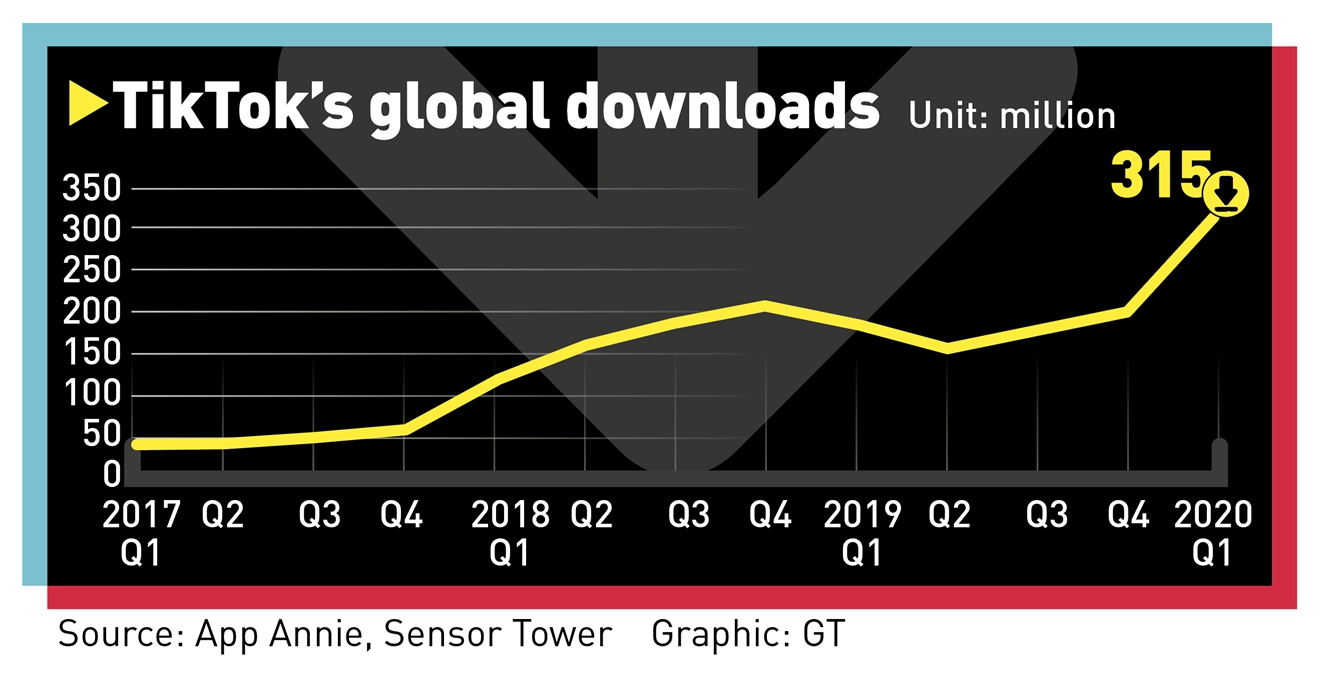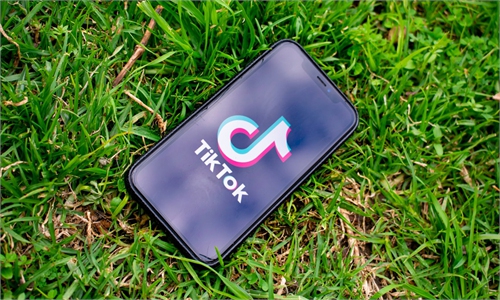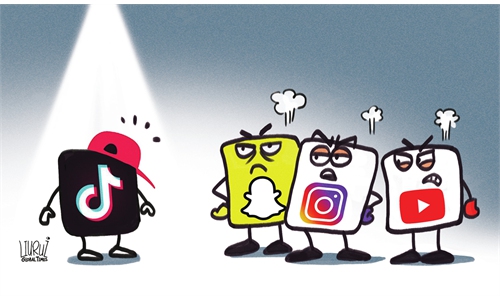Microsoft well circles TikTok buyout amid US crackdown: analysts
Microsoft well circles TikTok buyout amid US crackdown

The logo of TikTok application is seen on a screen in this picture illustration taken February 21, 2019. Photo: VCG

Graphics: GT
Chinese short-video app TikTok is likely to be acquired by US tech giant Microsoft rather than being banned in the US, a move which might weaken the competitiveness of the phenomenal internet product, Chinese analysts said.
Microsoft said in a statement Sunday that the company is prepared to continue discussions to explore a purchase of TikTok in the US.
Microsoft will move quickly on discussions with TikTok's parent company, Beijing-based ByteDance, in a matter of weeks, and in any event completing these discussions no later than September 15, during the process of which Microsoft looks forward to continuing its dialogue with the US government, including with US President Donald Trump, the firm said.
In an internal letter signed by Zhang Yiming, founder of ByteDance, Zhang said that his company is a private company, and that it is willing to adopt more technological schemes to dispel doubts on the US side, but the Committee on Foreign Investment in the US (CFIUS) insists that ByteDance needs to sell Tiktok's business in the US.
"We don't agree with the decision, as we have always insisted on protecting users' data privacy, platform neutrality and transparency," reads the letter. "Considering the current environment, we must face up to CFIUS' decision and the US president's executive order, but we won't give up exploring any possibilities."
Zhang noted that ByteDance is now in preliminary discussions with a tech company to guarantee that TikTok can continue to serve US users, and that they have not definitely decided what action to take.
Wang Chao, founder of the Wenyuan Institute for Politics and Economics, a Beijing-based think tank, told the Global Times Monday that the destiny for TikTok US operations is likely to be the purchase by Microsoft.
"But full purchase might not be conducive for the growth of TikTok in the future as Microsoft lacks the genes of the internet," Wang said.
Without technology support such as recommending algorithms based on artificial intelligence and mature operations experience provided by ByteDance, it is hard to say if TikTok would continue its glamor as it has now in the world, Wang said.
Compared with the other scenario - an outright ban in the US as Trump has threatened - selling the asset is more pragmatic, he added.
Zhang Yi, chief analyst at consultancy iiMedia Research, a Guangzhou-based analysis organization, said that if TikTok is shut down in the US, it would bring tremendous loss for US investors who have put capital in the app.
"The chances are high that TikTok will be sold in the US. I believe the US capital behind TikTok is now wrestling with the US government on securing a good price," Zhang told the Global Times, adding that what the US government did to TikTok is "naked bullying," but that Chinese companies that invest in the US should prepare for similar acts in the future.
While TikTok has become the latest target of US politicians amid souring China-US ties, US social network giant Facebook is busy grabbing users that are popular on TikTok to fill in the void.
"What Facebook wants to see is TikTok being banned in the US market, but that is unlikely to happen," said Liu Xingliang, director of the Beijing-based Data Center of China Internet.
Facebook's copycat product Reels which is tied to Instagram is expected to roll out in early August to users in the US and several other countries, according to media reports. Its other copycat Lasso failed quickly.
Likened to an elephant in the room, the rising TikTok has threatened the position of Facebook that it has held in the social networking sector, while in the short-video segment, Facebook still lacks a competitive product to parallel with TikTok, Liu said.
In a statement issued Monday, ByteDance said it is facing "complex and unimaginable difficulties" in the process of becoming an international company, including international political tension, cultural clashes and "copying and slandering" from Facebook.
On his blog posted Wednesday, TikTok CEO Kevin Mayer accused Facebook of using patriotism as an unfair way to attack TikTok. "Let's focus our energies on fair and open competition in service of our consumers, rather than maligning attacks by our competitor - namely Facebook - disguised as patriotism and designed to put an end to our very presence in the US."
"As a commercial firm, if Facebook purely wants to grab more market share by taking advantage of the current opportunity and provide competitive products, it will have our respect," said Huang Haifeng, an independent observer in high-technology sector.
However, "Facebook is actively promoting political means to assault its competitors without giving clear evidence, which will only have a hugely negative impact on the US firm," Huang said.





